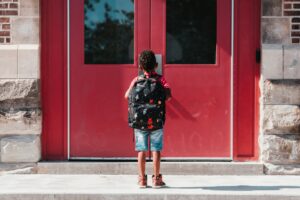 Last weekend I was reminded of the care and caution needed with raising young Black men.
Last weekend I was reminded of the care and caution needed with raising young Black men.
My sons have been involved with a local Boy Scout troop for the last five years. My eldest joined the scout troop at the beginning of sixth grade and my younger two sons followed suit. Up to this point, I’ve never felt they were looked at or treated differently based on their race. Until last Sunday.
Sunday night, a couple of hours after the weekly troop meeting, I received an email from one of the scoutmasters. He expressed concern about an incident a parent reported to him involving my eldest son. He also mentioned another incident that happened the week before and referred to “the others that parents have referenced.” These incidents, as described to me, in one case involved my son pushing another scout and in the other case he was attempting to take an object away from a scout. The scoutmaster did not know any context besides what I describe above, nor did he attempt to ask my son about these incidents before concluding that he, as scoutmaster, needed to “provide a safe environment” for the boy scout troop and asked me “what actions can be taken to ensure these behaviors stop.”
“Safe environment” is what I want to focus on in this blog post. What does this mean? Safe for whom? Safe according to whom? Without investigating the context of what was happening among these young men, my son’s behavior was interpreted to be dangerous, violent, menacing, and at the very least unwanted. While I agree he shouldn’t have grabbed and pushed another boy to the ground, I also must ask, where do we cross the line where behaviors are deemed dangerous or violent? What if violence in the form of bullying prompted my son’s physical response?
Is my son a violent person? No. He’s never even been involved in a fight. He genuinely doesn’t have a mean-spirited bone in his body. He can’t even watch slasher movies or endure other images of that sort. Does he get upset? Certainly. We all do when other people do things to hurt us, annoy us, or for a variety of other reasons. Did he handle this situation well? No. However, I will also point out, what were his choices? If he told a scoutmaster that the other boy had bothered him, trying to take his car keys and calling him names, the research about bullying shows us that adults are slow to respond, if they ever respond. In addition, conventional wisdom teaches kids that, as the older boy, he risks looking foolish and petty if he does turn to an adult for help. What information or procedures have any of the boys been taught that help them to handle being harassed and annoyed?
What strikes me in this situation is that my son is now being marked as dangerous and/or violent based on one incident. Now the scoutmaster must protect the other boys from the big, Black boy. Perhaps this phrase carries the issue a bit far, but what I hear from this is not a question of why my son might have been upset by the other boy, or even a question of what happened and how the entire situation can be prevented. Instead, all the responsibility is placed on my son. There is no sense of trying to understand and certainly no measure of doubt in placing the blame on him. We must remediate this boy, and now. Why is that?
We live in a society that continues to traffic in the notion that Black men are dangerous and violent. Like the Trayvon Martin case, when we see a tall Black male, it is acceptable to consider him “up to no good” and/or prone to violence first, then ask questions later. This is especially true when a Black boy is engaging in any behaviors (whether it’s rough play or neighborhood hide-and-go-seek) with White boys where his behaviors are easily taken out of context and interpreted as warning signs of aggression and/or brutality. Yet for White boys, those same behaviors are thought of as “boys will be boys” or we talk of “accidents” or find a way to understand, empathize even, with such responses. This is what I heard when the scoutmaster referred to the need to provide a “safe environment”; he was really saying that my son was not safe; that he poses a danger to the White boys in his troop.
There is a burden that comes with black skin. It’s the burden of being human inside, which comes with all the emotion and responses that everyone else has, but the super-human responsibility of having to always keep control of the very human emotion and response, less you be labeled as an aggressive or violent person.
Put another way, in a recent NPR special series called “The Race Card Project: Six-Word Essays” a Black doctor submitted his six-word essay: “55 mph means you Black man.” Regardless of what his colleagues do, Dr. McGriff must always conduct himself differently; “avoid any kind of behavior” that would bring his presence to attention. Not unlike another NPR story “A Mom’s Advice to Her Young, Black Sons,” where writer Donna Britts and her two sons Justin and Darrell Britts-Gibson talk about the prejudice they encounter as Black men and the need for them to be more cautious in their actions.
I used this incident to impress upon my sons the ever-present reality that they must be vigilant in their interactions and behaviors, even among their fellow boy scouts. In the immediacy, the consequences are losing the opportunity to continue in scouts, but in the real world, the consequences for not properly exercising vigilance can cost them their freedom or their very lives.
